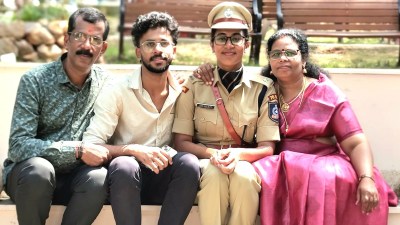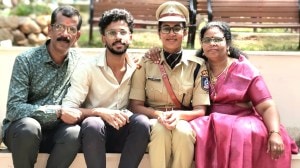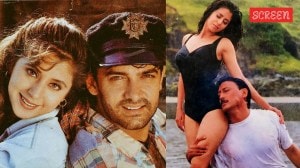Denial is the easiest form of defence
During Cronjegate, and for months afterwards, the man and woman on the street needed serious answers to major issues affecting the game. The...

During Cronjegate, and for months afterwards, the man and woman on the street needed serious answers to major issues affecting the game. They wanted more transparency. They felt Ali Bacher was not being straightforward in his responses to the King Commission probing Cronjegate.
One of the questions that keeps surfacing today is what Bacher knew of match-fixing incidents affecting Hansie Cronje and the South African team. When Cronje revealed to the King Commission of the approach by Salim Malik at Newlands in January 1995, it was assumed — everyone knew, there were sworn affidavits to that effect — he had told Bacher of the incident during the final of the Mandela Trophy. Why, then, has this not been exposed?
There was also the episode in November 1996 when South African newspapers queried details about the Mumbai benefit game for Mohinder Amarnath which was suddenly elevated to full international status without adequate explanation apart from the sale of tickets being slow. In this report was a claim, later to be proved accurate, that players had been offered to split between them $250,000 if they threw the match.
Yet when questioned at the King Commission, Bacher denied knowledge of the Mumbai incident. Later Bob Woolmer, the coach, claimed that Bacher had been told about the episode in the Mumbai hotel room and two Johannesburg-based newspapers repeated claims that he had been questioned at the time.
Another problem area is that Bacher had two versions of the way Cronje admitted his guilt. In the small hours of April 11, 2000, Cronje in a sense ‘‘handed himself over’’ to Rory Steyn, the South African team’s chief security officer for the ongoing series against Australia.
Bacher’s initial version — on TV, the day Cronje admitted his guilt — was that he was contacted by Cronje to admit his guilt. Later, he said (and so does the version in the book) that team manager Goolam Raja, alerted by Steyn, contacted Bacher. At the media conference on a fractious Tuesday afternoon, when Bacher said the UCB had been ‘‘betrayed’’ and ‘‘lied to’’, there was even more confusion over what Cronje had been saying.
Cronje, by now sacked as captain and then in Cape Town with Minister of Sport Ncgonde Balfour, mentioned that he ‘‘was not alone’’. Whether this alluded to long-standing claims that UCB officials, along with those in other countries, knew more than they were prepared to admit is uncertain. What it did do was lead to Bacher issuing a denial of a ‘‘cover up’’ of events surrounding previously known match-fixing episodes that also included the Newlands incident with Salim Malik.
More damning perhaps is the admission by Cronje in January 2000, to a friend and financial advisor, that he had seen a dossier in the UCB offices of suspected match fixers. The list was said to have been given to Bacher by an ICC administrator, said to be Dave Richards, the former chief executive.
On that list were Mohammed Azharuddin, Malik, Australians Shane Warne and Mark Waugh and Brian Lara as well as Alec Stewart. Apart from Azhar and Malik the others have denied involvement.
In the book South Africa’s Cricket Captains, co-authored with the late Jackie McGlew, I make the following observations regarding Cronje and some match-fixing incidents:
Denial is the easiest form of defence; when the truth is exposed, though, as it was in Cronje’s case, it damages the credibility of those around him as well. The post-Cronjegate years have not been easy for some to handle. Suspicions remain and in this Bacher’s denial to the King Commission about knowledge of the financial dealings in the Mumbai game in 1996 do not sit well with those seeking transparency on an issue which has left more than one ugly scar on the game.
Photos


- 01
- 02
- 03
- 04
- 05




























